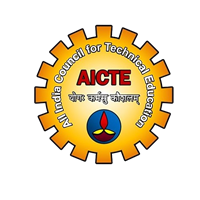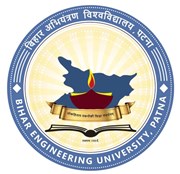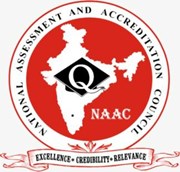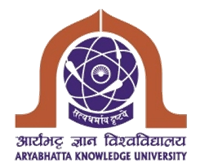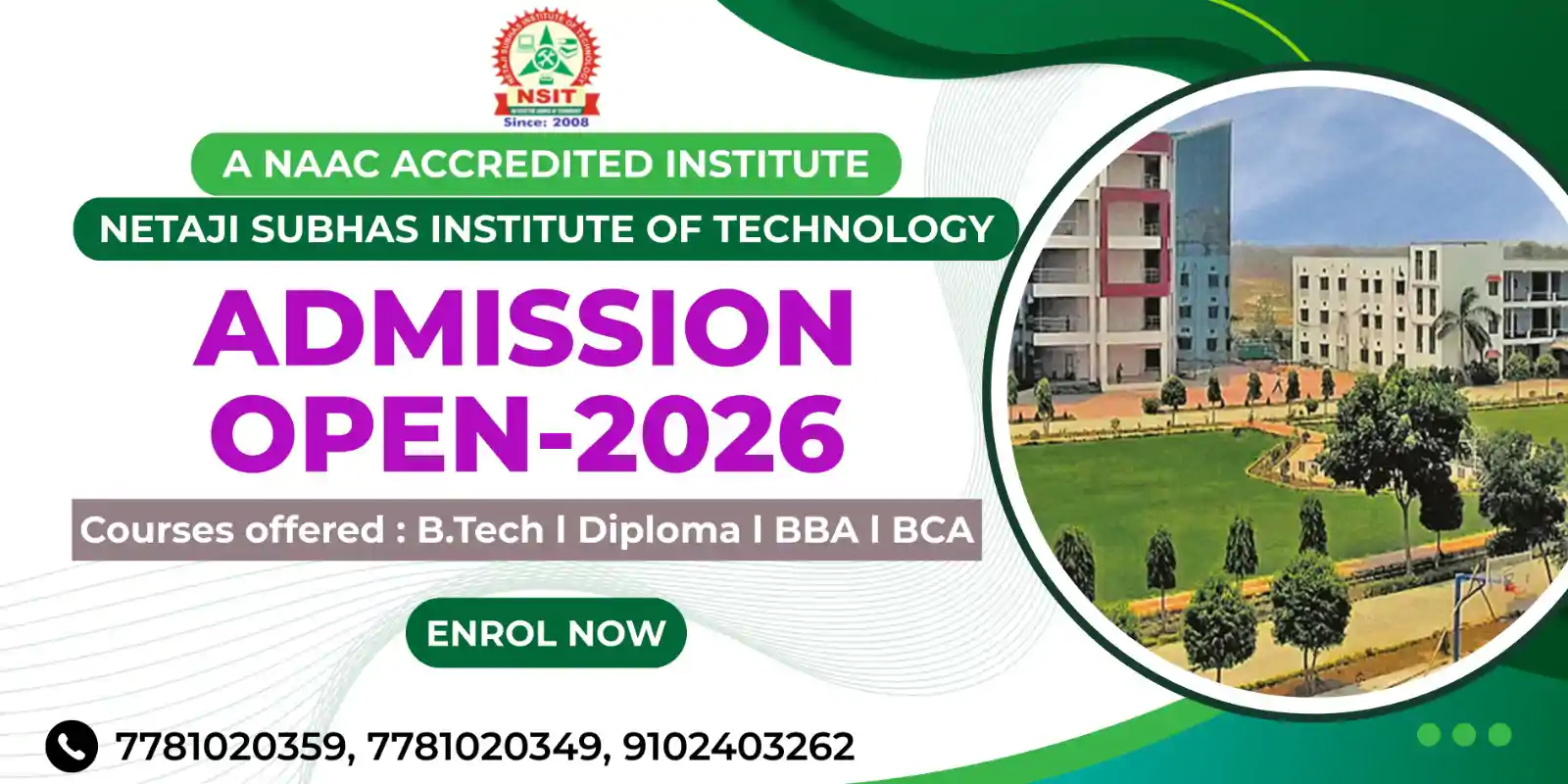-
AICTE Approval
-
BEU Affiliation
-
NAAC Accreditation
-
AKU Affiliation
-
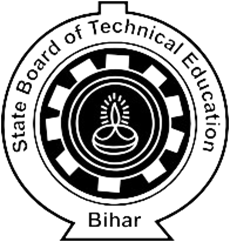 SBTE Affiliation
SBTE Affiliation
Department Of Electrical And Electronics Engineering
About Department
The Department of Electrical & Electronics Engineering (EEE) was founded in the academic year 2008-09. It offers Undergraduate (UG) degree programs. The department continually invests in and upgrades its infrastructure and faculty expertise across various areas related to core Electrical and Electronics Engineering.
The B.Tech. program in Electrical and Electronics Engineering, often referred to as the “Mother of All Branches” is one of the most popular undergraduate programs at NSIT.
The Department of Electrical and Electronics Engineering typically deals with the study and application of electricity, electronics, and electromagnetism. It also deals with many of the real problems facing our world today such as electric power transmission and electrical machines. This field deals with every aspect of handling information from sensing and acquisition through communications, networking, switching, processing and storage. The Department of Electrical & Electronics Engineering at NSIT was established in 2008.
The main objective of the department is to offer value-added educational experience through quality instruction that prepares graduates for a range of career opportunities in today`s world. The department envisages moulding graduates to become experts in their chosen fields by encouraging them to become members of professional societies and broaden their knowledge. Department also focuses on the graduates to practice professional consistency with a sense of responsibility and the promotion of social justice, it also ensures that all the final year students do live projects in industries and present the technical material orally and in writing.
The Department of Electrical & Electronics Engineering at NSIT started it's Undergraduate program of Bachelor in Technology in the year 2008. This program is designed to meet the needs of Electrical Power Generation, Power Transmission and Distribution, Electrical Power Utilization, Modern Control Theory, High Voltage Engineering, Circuits, Machines, Drives etc. The department is well equipped with state-of-the-art laboratories with excellent computational facilities. The lab facilities and the infrastructure are regularly upgraded and developed and are well maintained by the Campus and the corporate world. Some of the laboratories are Basic Electrical Engineering Laboratory, Electrical Machines Laboratory, Power Electronics Laboratory, Electrical Measurement Laboratory, Electrical Workshop, VLSI Laboratory, Control system laboratory & Simulation Laboratory etc. Our students have many opportunities to go on industrial visits, shadow employers at the workplace, and undergo summer training at premier companies in the electrical industry such as HAL, BHEL, BSPHCL, INDIAN RAILWAY, BSNL and NTPC. Graduates in Electrical and Electronics Engineering get an opportunity to work in core electrical companies in the field of design, manufacturing, maintenance, electronics industries or allied fields and software industries. Graduates can pursue higher education in the field of electrical, electronics, compu ters and management.
Our well educated and highly talented faculty members encompass a wide knowledge of sub disciplines of Electrical & Electronics Engineering. Associations with faculty members from inter- disciplines, both within and outside the campus, are in vogue.
The department is continuously engaged in research and development activities. Several National and State level seminars, Technical Festivals, Faculty Development Programmes, Conferences, Symposiums, Expert Lectures, Workshops, Staff Training Programmes, Short Term Courses etc. are part of its yearly agenda.

Nishant Kumar (HOD)
Department Intake
- B.Tech (EEE) - 126 seats + 10% Lateral Entry
 Our Vision
Our Vision
- To produce Electrical Engineers with energetic, well-rounded personalities flexible to cope with escalating demands of budding technologies concerning analytical and practical skills.
 Our Mission
Our Mission
- To extend the department as a prominent academic center of learning in the discipline of electrical engineering.
- To set up a research and development hub of status to promote active participation with industry by staff and students to take on practical problems of industry and to provide feasible solutions.
- To develop simple, suitable technologies which will be helpful in the upliftment of rural society.
Programme Educational Objectives (PEOs)
The Program Educational Objectives of the Electrical & Electronics Engineering undergraduate program are for graduates to achieve the following within four years of graduation. The graduates of the Electrical & Electronics Engineering Program will:
Programme Educational Objectives
- PEO 1: Our graduates can apply their technical knowledge and take on higher responsibilities in industry, academics, and diverse Electrical and Electronics engineering fields.
- PEO 2: They will be in a position to pursue a continual path of professional development, interspersed with advanced education and continuing enhancement programs relevant to their specific career goals.
- PEO 3: They can channel their knowledge base, business links, and social contacts into socially beneficial activities.
PROGRAMME OUTCOMES (P.O.’s)
Program Outcomes
- PEO 1: Engineering knowledge: Apply the knowledge of mathematics, science, engineering fundamentals, and an engineering specialization for the solution of complex engineering problems
- PEO 2: Problem analysis: Identify, formulate, research literature, and analyse complex engineering problems, reaching substantiated conclusions using first principles of mathematics, natural sciences, and engineering sciences.
- PEO 3: Design/Development of Solutions: Design solutions for complex engineering problems and design system components or processes that meet the specified needs with appropriate consideration for public health and safety, and cultural, societal, and environmental considerations.
- PEO 4: Conduct investigations of complex problems: Use research-based knowledge and research methods including design of experiments, analysis and interpretation of data, and synthesis of the information to provide valid conclusions.
- PEO 5: Modern tool usage: Create, select, and apply appropriate techniques, resources, and modern engineering and I.T. tools including prediction and modelling to complex engineering activities with an understanding of the limitations.
- PEO 6:The engineer and society: Apply reasoning informed by the contextual knowledge to assess societal, health, safety, legal, and cultural issues and the consequent responsibilities relevant to the professional engineering practice.cietal, and environmental considerations.
- PEO 7: Environment and sustainability: Understand the impact of the professional engineering solutions in societal and environmental contexts, and demonstrate the knowledge of, and the need for sustainable development.
- PEO 8: Ethics: Apply ethical principles and commit to professional ethics and responsibilities and norms of the engineering practice
- PEO 9:Individual and team work: Function effectively as an individual, and as a member or leader in diverse teams, and in multidisciplinary settings.
- PEO 10: Communication: Communicate effectively on complex engineering activities with the engineering community and with the society at large, such as being able to comprehend and write effective reports and design documentation, make effective presentations, and give and receive clear instructions
- PEO 11: Project management and finance: Demonstrate knowledge and understanding of the engineering and management principles and apply these to one’s work, as a member and leader in a team, to manage projects and in multidisciplinary environments.
- PEO 12: Life-long learning: Recognise the need for, and have the preparation and ability to engage in independent and life-long learning in the broadest context of technological change
PROGRAMME SPECIFIC OUTCOMES (PSO’s)
Program Specific Outcomes
- PEO 1: Provide effective and efficient real-time solutions to Electrical Engineering problems based on acquired knowledge to empower industry and society.
- PEO 2: Enhance research skills to develop sustainable solutions to Complex Electrical and Electronic Engineering problems.

Coming Soon
Faculty

Dr. JOTIMAYEE DALEI

Coming Soon

Coming Soon

Coming Soon

Coming Soon

Coming Soon

Coming Soon

Coming Soon

Coming Soon

Coming Soon



